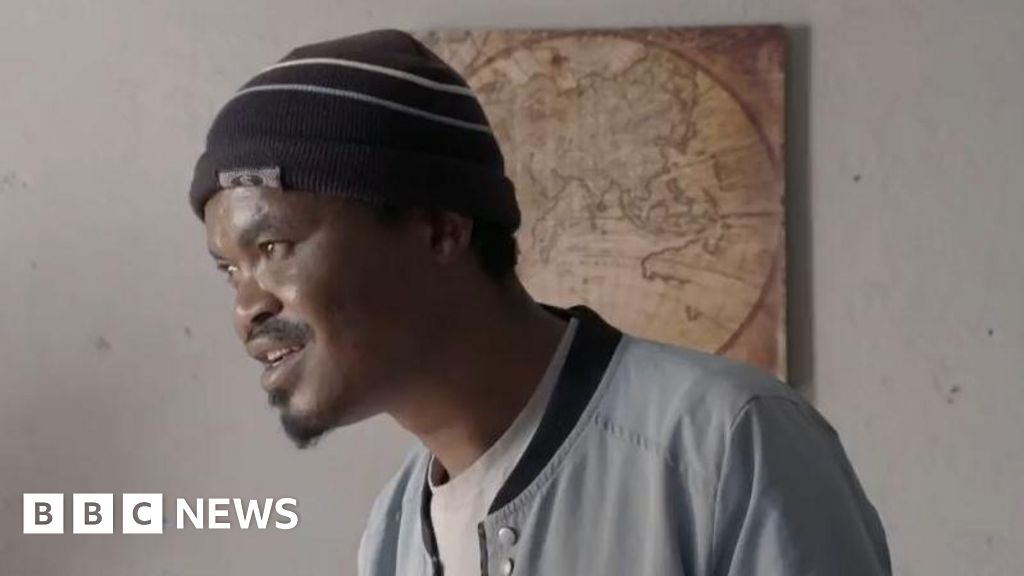Ahead of the G20, is Johannesburg's city centre in ruins?

Johannesburg's Crumbling Core: G20 Summit Looms Over City Centre Decay
As South Africa prepares to host the G20 summit in Johannesburg, the stark contrast between the polished conference venues and the city's decaying inner core is drawing sharp criticism. Just kilometres from the summit's highly secured location, widespread dilapidation, hijacked buildings, and failing infrastructure plague the city centre, raising concerns about the long-term sustainability and inclusivity of Johannesburg's economic growth.
Derelict Buildings and Criminal Control
The BBC has identified at least 102 derelict or abandoned buildings within the inner city, an area spanning approximately 18 square kilometres. Many of these structures are plagued by uncollected refuse, open sewage, and have been seized by criminal elements. Residents describe environments rife with drugs, prostitution, and violence.
Nelson Khetani, a resident of MBV1, a building in Joubert Park, paints a grim picture: "There's guns, there's drugs, there's prostitutes, there's everything here." He recounts how rooms have been hijacked, with criminals extorting rent and using the building as a base for illegal activities.
President Ramaphosa's Concerns
The state of Johannesburg's city centre has not gone unnoticed by South Africa's leadership. President Cyril Ramaphosa voiced his concerns during a city council address in March, stating, "I found the city filthy. It is a painful sight to go through the centre of the city… you have a number of abandoned buildings, buildings that have been hijacked, that are not paying your rates and taxes."
Despite reassurances from Johannesburg Mayor Dada Morero about the city's readiness to host the G20, the challenges remain significant. A recent "clean-up" campaign targeted "pervasive lawlessness, illegal activities, hijacked properties, and critical by-law infringements," but the scale of the problem requires a sustained and multifaceted approach.
A History of Neglect and Urban Migration
The current crisis is rooted in historical inequalities and urban planning failures. Following the end of apartheid in 1994, a large influx of black and mixed-race residents migrated from townships to the city centre seeking employment and opportunity. This surge in population placed immense strain on housing resources. Combined with under-investment and the departure of affluent landlords, many buildings fell into disrepair, becoming vulnerable to criminal exploitation.
"The legacy of apartheid spatial planning continues to haunt Johannesburg," explains Dr. Tanya Zack, a researcher at the University of the Witwatersrand specializing in urban informality. "The city centre, once the exclusive domain of white residents and businesses, was never adequately prepared for the rapid influx of people seeking affordable housing and economic inclusion. This created a breeding ground for building hijacking and neglect."
The Human Cost: Lack of Basic Services
The consequences of this neglect are felt most acutely by the residents of these dilapidated buildings. At Vannin Court, another inner-city building, residents live amidst squalor, with rooms covered in dirt and permeated by the stench of human waste. Sinethemba Maqoma, a resident, reports that the council-owned building has been hijacked and that water services have been cut off.
"The municipality was angry about the crime from this building... that's why they took [away] the water," adds Sinqhiwe Goodman Sithole, another resident. Without reliable access to water or electricity, residents rely on dangerous alternatives like portable gas stoves, increasing the risk of fires. Cars abandoned in the building's basement are partially submerged in overflowing sewage.
The Challenge of Evictions and Legal Hurdles
Evicting residents from these derelict buildings appears to be a straightforward solution, but South Africa's constitution protects the right to housing. Evictions require court orders and the provision of alternative accommodation, placing a significant financial burden on the local authority. The Prevention of Illegal Eviction Act further complicates the process, often leading to lengthy legal battles.
Johannesburg Central's sheriff, Marks Mangaba, confirms that large-scale evictions are financially prohibitive. Even with court orders, landlords, whether private or state-owned, must cover the costs of relocating residents. Mass evictions would also create a homelessness crisis, requiring the city to provide housing for displaced individuals.
Corruption Allegations and Official Response
Adding to the complexity, allegations of corruption have surfaced. A former hijacker, identified only as Joseph, claims that collusion between criminals and city council officials prevents evictions. He alleges that bribes ensure that hijacked buildings are left undisturbed.
The City of Johannesburg's deputy director of communications, Nthatisi Modingoane, denies these allegations, stating that the council has no "physical" or "credible reports" suggesting any wrongdoing. He maintains that the council is committed to cracking down on criminal activities in hijacked buildings and will intensify operations to "clean the city." The Johannesburg police have not responded to requests for comment regarding bribery and intimidation.
Moving Forward: A Call for Comprehensive Solutions
As Johannesburg welcomes global leaders for the G20 summit, the plight of its inner-city residents serves as a stark reminder of the challenges of inequality and urban decay. While the summit offers an opportunity to showcase South Africa's economic potential, it also underscores the urgent need for comprehensive and sustainable solutions to address the city's housing crisis and governance challenges.
Professor Sarah Charlton, an expert in housing policy at the University of Johannesburg, argues that a holistic approach is essential. "Addressing the crisis requires a multi-pronged strategy that includes investing in affordable housing, strengthening law enforcement to combat building hijacking, and promoting inclusive urban planning that prioritizes the needs of marginalized communities. Without a concerted effort, Johannesburg risks becoming a city of stark contrasts, where prosperity exists alongside deep-seated inequality and decay."
Originally sourced from: BBC News Africa
